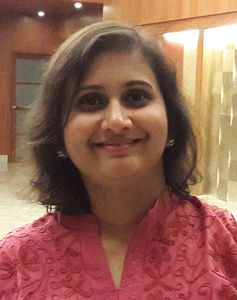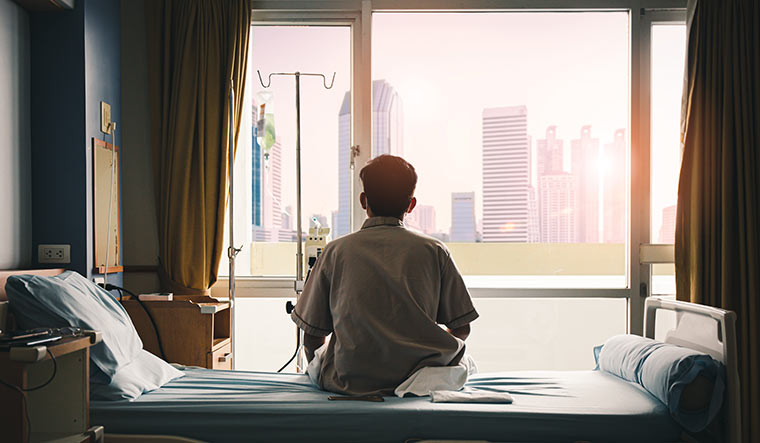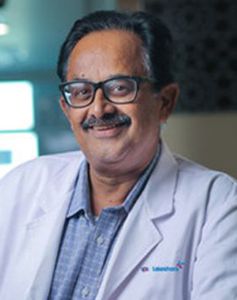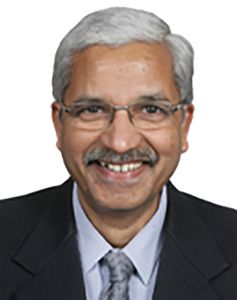DAVE HAD LOW-GRADE fever, unrelenting fatigue and body ache for two days. As Covid-19 gathered pace around the world, his doctors dismissed his concerns as seasonal cold and he was asked to wait a few months for his biopsies and blood work. By the time he got his diagnosis, the cancer had spread to his lymph nodes from his thyroid. The ‘No Visitors’ policy at hospitals due to the pandemic meant he was alone in the oncologist consultation room to receive his diagnosis. Now Dave had to worry, in addition to the cancer diagnosis, about people who could get him sick. “I was scared and furious, at the same time,” he said.
Covid-19 had made a challenging situation all the more difficult. As the world continues its fight, oncologists and cancer patients find themselves in a quandary.
On one side, the doctors are struggling to provide appropriate care. They have to weigh the risks and benefits of giving cancer treatment versus the chances of getting them infected with Covid-19, as cancer patients are immunocompromised and there are high chances of exposure during hospital visits. If they get infected, the outcome can be dangerous. On the other side, cancer patients who are highly susceptible still need routine treatment and medical visits. Many of them are aged and regular visits increase their chances of contact with infected people.
Patients are confused on how to go about their treatment during a pandemic: should they be going in for routine visits? Is their surveillance going to be delayed? Should they call their doctor about a symptom or a side effect? What precautions should they take during in-person visits? Will the situation delay their surgery or treatment?
Impact on delivery of care
At the pandemic’s onset, health care providers delayed and cancelled all but the most urgent treatments and surgeries. Dr Lalit Kumar, professor and head, medical oncology, All India Institute of Medical Sciences, New Delhi, shares that in his centre, appointments for patients with malignant disorders had been rescheduled. “A few departments have started telemedicine consultations,” he said. “There are patients whose chemotherapy is due—like breast cancer and ovary cancer. We are trying to continue their chemo as per schedule for those who are able to come, but this is for about 30 to 40 per cent of patients. Very few are able to receive treatment at their places. This really becomes a problem for patients who are on clinical trials.”
The pandemic has led to a transformation of every aspect of cancer care. Treatment regimens are being changed to reduce hospital visits. Drawing on experience from the severe acute respiratory syndrome epidemic, health care teams are being split into two, with minimal contact between them. Cancer teams are being relocated away from general hospitals caring for patients with Covid-19 as much as possible.
High rates of sickness among health workers due to Covid-19 are dramatically reducing the number of available staff. As reported in The Lancet, a survey done by the Royal College of Physicians in April found that about 20 per cent of the respondents were taking time off work. The main reasons were suspected Covid-19 infection or self-isolation because a household member had symptoms.
“The need of the hour was to balance all the issues in order to continue the best care possible with maximum safety,” said Dr Narayanan Harimohan, radiotherapy, pain and palliative medicine specialist, Lakeshore Hospital, Kochi. “Most long-term follow-ups were done by phone and by online consultations. New cases were prioritised under strict Covid-19 protocols and Covid-19 testing was done for anyone visiting out-patient clinics or hospital. Chemo regimes were altered to oral possibilities or targeted therapies orally unless absolutely essential. Radiotherapy was continued under Covid-19 safety guidelines.”
Cancer specialists predict that new ways of working in cancer care during the Covid-19 pandemic will permanently change oncology services, after evaluating their impact.
Impact on patients
Shirly, a multiple myeloma survivor, woke up with low-grade fever one day. Her oncologist asked her to wait and see if the fever crosses 100 degrees Farenheit. The next day afternoon, the fever spiked and she had to be admitted. Since her symptoms were not typical of Covid-19, she was not tested for it. Her husband, Steve, and daughter, Meg, had to leave the hospital after visiting hours and it would be a long time before the family would reunite.
Doctors were concerned about Shirly’s Immunoglobulin G (IgG) levels, and she was administered an infusion. However, the test results were all negative and finally, they sent for Covid-19 testing, which returned positive. Soon, Shirly was shifted to the Covid-19 ICU wing and put on ventilator. Over the next 15 days, she was treated with hydroxychloroquine and azithromycin, blood infusions and IgG infusions but her lungs collapsed. Her family was informed of her slim chances of survival. Fortunately, in a couple of days, Shirly turned a corner and her breathing returned to normal. She was moved out of the ICU and was discharged after a few days.
Cancer patients have a higher risk of death or other severe complications from Covid-19, according to a study. The co-authors from China, Singapore and the US found that cancer patients who developed Covid-19 had a threefold higher death rate from the virus than that estimated for the general population. Cancer patients also were more likely to experience “severe events” such as being admitted to ICUs and needing mechanical ventilation.
Over the course of 2020, cancer specialists have struggled to understand how to protect their patients, whose immune systems are compromised by therapies like chemotherapy and radiation.
Dr Steven Pergam, clinical and infectious disease researcher at Fred Hutchinson Cancer Research Center, and medical director of infection prevention at Seattle Cancer Care Alliance, said that patients with types of blood malignancies are at increased risk. High-risk group also include those in active treatment for any type of cancer and those who have undergone bone marrow transplants. Comorbid conditions like respiratory or cardiac problems also put patients at increased risk.
Pergam adds that there is no easy blood test to check someone’s level of immune suppression, but being in active chemotherapy, having low white-cell or low lymphocyte counts and/or taking immune-suppressive agents (such as prednisone) are all associated with immune suppression and an increased risk of infection. “We don’t know all the details on this yet, but if you have been told you are immunosuppressed by your doctor, then you should be extra cautious,” he said.
As for if a patient with cancer starts feeling sick, Pergam recommended they call their oncologist and medical team and let them know. “Those who have severe symptoms and are struggling to breathe should call ahead before they go to the emergency room or clinic and let them know about their symptoms,” he said. “It is important to ensure that the care team is prepared to handle the situation with a separate room to avoid placing other patients at risk.”
Pergam also stressed the importance of adequate sleep and a balanced diet to help in recharging the immune system.
As the pandemic progresses, people with cancer feel isolated. Over the last six months, 50-year-old Anne has undergone chemo, radiation and a partial mastectomy and lymph node removal. When she is not in treatment to fight her breast cancer, she is holed up in her apartment. “It is like getting attacked from the inside and the outside,” she says. “What is safe? Nothing.”
Priya Menon is scientific media editor at TrialX/Applied Informatics Inc. She manages and hosts CureTalks, an international online radio talk show on cancer research and health care.






